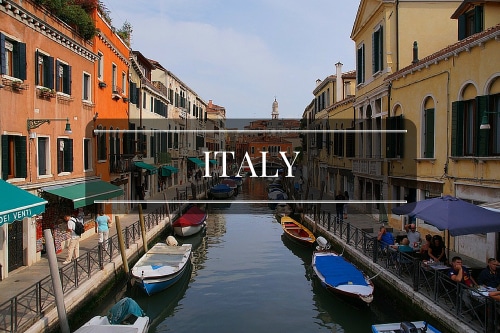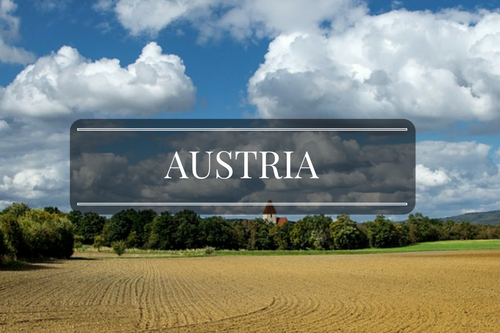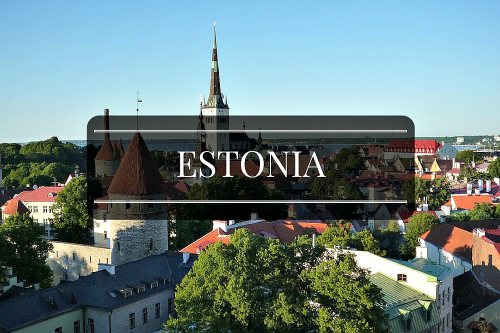Europe is one of the major players in human history. The world’s smallest continent, Europe offers a great deal to expats, including lucrative job opportunities and rich cultural wealth.
The European Union (EU) is an economic and political union between 28 countries in Europe, which together span most of the continent. The EU came into existence after the Second World War, when the priority was to foster economic cooperation, as nations that trade with each other become economically interdependent and are therefore more likely to steer clear of conflict.This led to the creation of the European Economic Community (EEC) in 1958, which initially fostered greater economic cooperation between six countries, namely Belgium, Germany, France, Italy, Luxembourg and the Netherlands. Since then, a large single market has come into existence, which continues to develop and advance towards its full potential.
The initial idea of a mainly economic union has developed into an organization that focuses on many other factors such as policy, climate, environment, health, external relations, security, justice and migration. The EEC was renamed the European Union in 1993. Since then, the EU has stood for peace, stability and prosperity, has helped improve living standards, and has launched a single currency: the euro. Since there are no border controls between EU nations, people can travel freely throughout most of Europe. It has also become easier to live, work and travel in Europe.
For young expats, the decision to relocate overseas is often connected to vital life decisions, especially with regard to higher education, employment options or lifestyle and personal commitments. The decision to move abroad for young expats is largely based on factors such as employment, education opportunities and income levels. There are also a number of other factors that are significant to this decision.
The Youth Expat Survey by Think Young consists of multinational research that examines the experiences of young expats between the ages of 18 and 28 in the following EU countries: the United Kingdom, the Netherlands, Poland, Germany, Italy, Belgium and France. Centered on the drivers of and obstacles to migration, the study investigates the motivations behind the decision to move to another country and the benefits experienced in each location. It also provides insight into the different push/pull factors that influence the decision to relocate for expat students and young expat professionals, and juxtaposes the positive and negative characteristics of expat life in the countries surveyed.
Deciding to move abroad
For expat students, the decision to relocate was based on a higher quality of education for 40% of students based in the UK, compared to only 14% in Poland and 9% in Italy. The desire to experience a new culture was an important pull factor for 50% in Italy, 44% in the Netherlands and 40% in Germany. Another pull factor was improving language skills for 42% of students in Germany and 39% in Italy.
For young expat professionals, the predominant reason for deciding to move to another country was to search for further job opportunities and to improve career potential. The most popular European destinations for expat young professionals on the lookout for better job prospects were Belgium (82%) and the UK (64%). 34% of young professionals moved to the Netherlands for financial security, and only 28% relocated for personal development. For expats in Italy, learning a new language was the most popular choice, followed by 24% in Germany and 22% in France. Belgium was the least popular choice for cultural heritage.
Benefits of relocation
The highest number of expat students benefiting from access to quality education was in the UK and the Netherlands, at 80% and 79% respectively. In contrast, only 9% in the UK benefited from affordable education. Expat students in Poland and Germany benefited from the most affordable living costs. The most drastic improvement in social life occurred in Belgium. In the Netherlands and the UK, the respondent students maintained that they were enjoying a better quality of life.
A high proportion of young expat professionals in Belgium (82%) and the UK (75%) benefited from career development after moving. In Poland, 63% of expats experienced more affordable living costs. Expats in the UK and France saw a rise in personal spending. In the Netherlands, expats have most benefited from an improved quality of life.
Some of Europe’s top destinations for expat students include the following.

The diverse nation of Sweden is among the best countries for gender equality and is also the Nordic destination with the highest rank in the QS Higher Education System Strength Rankings. Sweden has a robust education system and Swedish universities are known to be encouraging to students. They are also places where application of knowledge, creativity, and critical independent thought is fostered. Eight of Sweden’s universities featured in the QS World University Rankings, with Lund University taking the top rank.

Italy takes 13th place in the System Strength Rankings. A country with a rich history, Italy has some of the most prestigious universities in the world, and also some of the oldest. The country has 26 of its universities in the QS rankings, with Politecnico di Milano taking the highest spot (187). Young expats moving to Italy to study will have the chance to be immersed in Italy’s rich, diverse, and exciting culture while getting a world class education.

Austria has for centuries been a recognized world leader in music and the arts, but in recent years, it has been claiming its spot in the field of education too, taking the 29th place in the System Strength Rankings,. Occupying a central position in Europe, Austria serves as a base from which students can visit neighboring countries. The University of Vienna, which was founded in 1365 and is the oldest in the German-speaking world, is the highest-ranking Austrian university in the QS Rankings. Austria is a hub for international politics and its universities are known for their international outlook.

Thanks to a large extent to its excellent higher education system, Belgium takes 15th place in the System Strength Rankings. Studying in Belgium offers a great opportunity to learn a second language, as the two main language communities are Flemish and French. Katholieke Universiteit Leuven (KU Leuven) is the highest ranked Belgian university.

Estonia is in 49th place in the System Strength Rankings, which is probably a surprise for many people. However, those who have been following this rather young nation may know that it has more successful start-ups per head than any other European nation. Once part of the Soviet Union, Estonia is now a leader in digital technologies, and the country’s education system fosters innovation and entrepreneurship in this and other areas. The Estonian university that ranks most highly is the University of Tartu.
The best regions for expat careers
European countries are within reasonable proximity to each other and can be accessed by bus, train, car or a short flight in a local air carrier. EU nationals are permitted to travel freely across the EU countries. For Americans too, visiting as a tourist or for business purposes does not require a visa, provided the stay is for no more than 90 days at a time within a 6-month period. Different rules apply to those on an internship, students or employees.
The HSBC Expat Explorer Survey, which assessed over 26,000 expats across the globe, revealed that Europe is the best region for pursuing an expat career. Switzerland, Germany, Sweden, Norway, Austria and the UK all made it to the top ten countries for a successful expat career.
For the second consecutive year, Switzerland emerged as the best all-round destination for a career overseas due to high earning prospects, an excellent work culture and a good work-life balance. In Switzerland, the average annual expat income is USD 188,275, which is nearly twice as much as the global average of USD 97,419. Over two thirds of expats in Switzerland reported an improvement in work-life balance and a similar proportion said that the work culture is better than in their home country.
More than 50% of the expats surveyed across Europe reported enjoying a better work culture than they did before. This is especially the case in Sweden, where nearly three quarters of expats reported this.
Norway was rated highly for work-life balance, with 87% of expats agreeing that their work-life balance has improved after their relocation. Austria, too, was rated highly for work-life balance benefits and work culture.
Some of Europe’s top destinations for young expat professionals include the following.

Switzerland ranked as the best all-round destination for a career overseas for the second consecutive year due to the high earning prospects, ideal work-life balance and excellent work culture. The Swiss economy continues to strengthen and unemployment rates have remained low. Switzerland ranked number one in the World Economic Forum’s 2015-2016 Global Competitiveness survey for the seventh consecutive year.

Germany has one of the world’s largest economies. The German IT industry is always on the lookout for employees and policy is structured to attract qualified personnel. This makes it a popular destination among young expat professionals in the IT field. There are also opportunities for expats in the fields of physics, chemistry, biology and engineering. Germany has some of the highest salaries in the world.

The services sector makes up nearly three quarters of the Belgian economy. The country also has a strong manufacturing sector and its main exports include petroleum products, food products, automobiles, metals and plastics. The country has a diverse, multicultural working environment. The Belgian business culture is influenced by Dutch, German and French business cultures. Expats occupy jobs in the services or manufacturing sectors, particularly in the capital city of Brussels. There is a shortage of workers in specialized jobs such as engineers, mechanics, accountants, technicians, IT specialists and qualified teachers.
Expats who move to work in Belgium will become part of the country’s open economy, which is showing improvement after the global financial crisis. Even though Belgium was affected by the crisis, and despite the fact that the country’s taxes are higher than other countries such as the UK and the USA, it still remains a popular choice among expat young professionals.

Norway is consistently seen as one of the best destinations in the world in which to work. Most Norwegians report a feeling of satisfaction and security in their job. On account of a robust economy, this state has been able to create an environment of confidence and optimism amongst its workers. The work culture in Norway is supportive of workers and strongly focuses on maintaining a good work-life balance.
Due to the country’s strong economy, there are many opportunities available for young expats, especially in the fields of research, engineering, IT and finance. Many expats are also employed in the oil and gas, energy and shipping industries. Norway has weathered the global financial crisis better than other countries in Europe and its economy continues to grow. The overall unemployment rate in 2015 was just 4% and career opportunities are often available. Multinational companies hire expats even if they are not fluent in Norwegian.

Austria, in the past, had strict work permit criteria that made the job hunt long and tedious for non-EU citizens. This was done to protect the local labor market. But recent legislation has considerably loosened immigration requirements for non-EU expats. These measures were aimed at filling the vacancies in certain sectors such as engineering, research and specialized management, as well as to supplement Austria’s ageing workforce.

In 2016, the United Kingdom had the fifth largest GDP in the world. It is among the most globalized economies and also among the world’s largest foreign direct investors. However, the global financial downturn did affect the UK and the government had to take certain measures, such as stimulating the economy while bringing down public expenditure and raising taxes.
The UK’s recent decision to exit the European Union led to the pound falling to its lowest level in over 30 years. Even though the prime minister has triggered Article 50, which officially marks UK’s exit from the EU, it is still too early to determine its full impact on the job market.
Are you a young expat living in the EU? Do you agree with the surveys’ rankings? How do you think Brexit will affect things in the future? Share your thoughts in the comments below, or answer the questions here to be featured in an interview.

